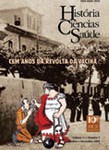How genetics can contribute to the debate about affirmative actions aiming to mitigate the inequalities created by slavery? In the article On slaves and genes: “origins” and “processes” in genetic studies of the Brazilian population, the anthropologist Elena Calvo-Gonzáles suggests that an analysis on origins can help to tackle this question.
In this article she examines how contemporary geneticists investigating the history and configuration of the Brazilian population engage with other academic disciplines. To do so she uses as a case study some articles, published between the 1990’s and early 2000’s, by geneticists researching the presence of hemoglobin S variants in Brazil, in which there is a clear pretension to contribute to the analysis of issues such as slavery or Brazil’s ethnic identity. By contrasting these studies with contemporary works from history and the social science, the explanatory centrality of “origin” in the genetic studies analyzed is problematized, as is the lack of interaction with the epistemological characteristics of other areas of knowledge.
See the full summary of HCS-Manguinhos latest edition (vol. 21, n. 4, out/dez 2014).
For further reading, see:
Lopez-Beltran, Carlos and Deister, Vivette Garcia. Aproximaciones científicas al mestizo mexicano. Hist. cienc. saude-Manguinhos, Jun 2013, vol.20, no.2, p.391-410. ISSN 0104-5970
Rotondaro, Tatiana Gomes. Human action in a Genomic Era:debates on human nature. Hist. cienc. saude-Manguinhos, Mar 2009, vol.16, no.1, p.157-170. ISSN 0104-5970
Elena Calvo-González
Tel. de contato: 71 92501850
elenasemaga@gmail.com









